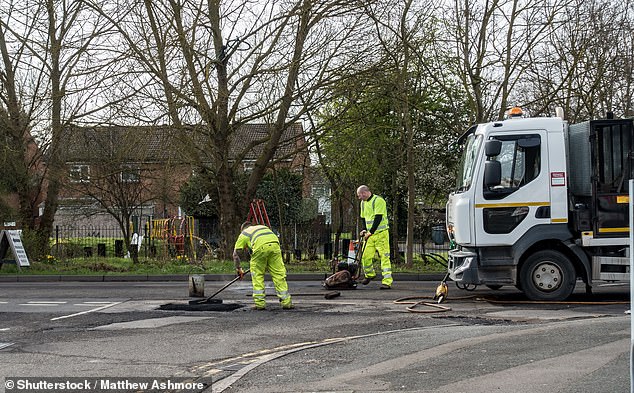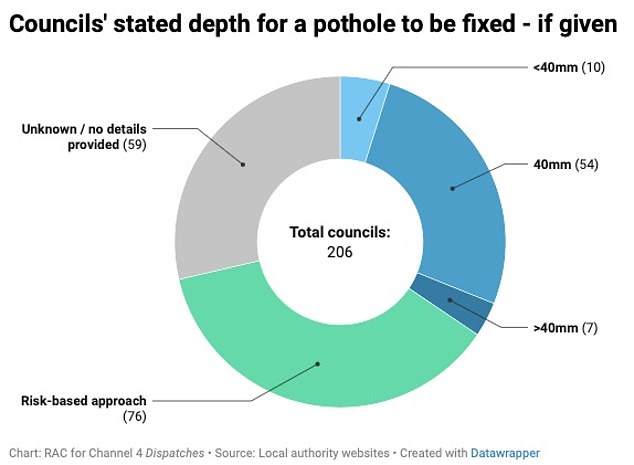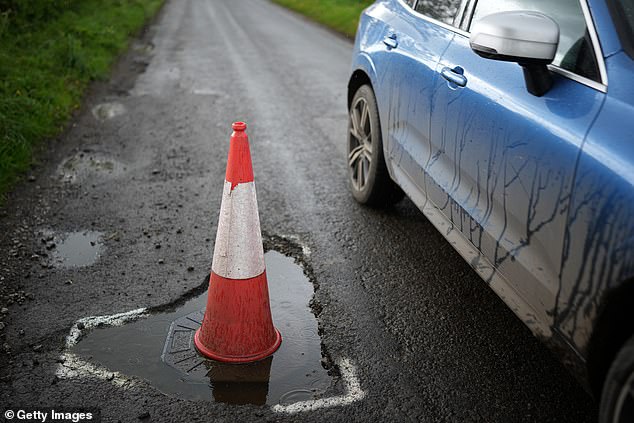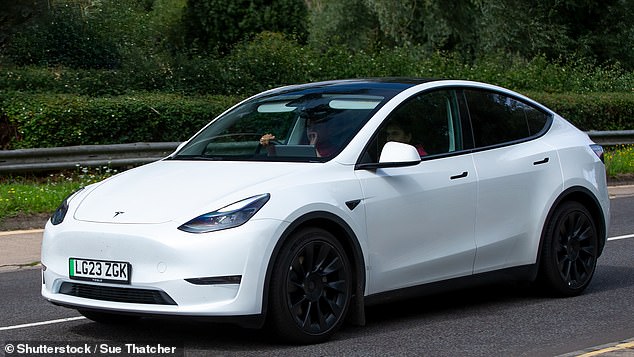A major road pavement company wants to end speculation about whether electric vehicles are the cause of increased potholes on the country’s roads.
The Asphalt Group, one of the UK’s largest road surface treatment companies, has called for a better long-term solution to the ongoing problem of Britain’s deteriorating road network.
This comes after some have claimed that the additional volume of electric vehicles, especially the huge SUV versions, are the biggest contributor to our cratered roads.
The Asphalt Group, one of the UK’s largest road surface treatment companies, wants to put to rest speculation that electric vehicles are the cause of the increase in potholes plaguing the country’s roads.

A recent report by trade association Asphalt Industry Alliance (AIA) estimated the bill for pothole-related payments at £15.2m.
The group is very clear that the switch to electric is not responsible for the poor quality of our roads.
Stephen Cooke, managing director of Asphalt Group, took a fighting stance on the issue, saying: “Let’s be very clear: electric vehicles are not the cause of the current state of the UK’s roads.”
So what is causing the shameful state of our streets and busy routes?
“The real reason is a lack of investment in future solutions and a lack of awareness of what’s available,” Cooke explains.
“Traditional sticky plaster solutions for potholes are simply unacceptable; we need to think about the bigger picture. The way forward is to prevent, reinforce and spray treat, not just fill and wait.”
The group believes a more affordable, lower environmental impact, and longer-lasting road network can be achieved if road paving and maintenance companies and the government work together.
Improving road surfaces is one of the main talking points in the automotive sector in the run-up to the election, with each party trying to chart its path to address the current problem.
But to achieve this, the current narrative of blame must move away from electric vehicles, something that Shadow Roads and Transport Minister Bill Esterson reiterates: “There are 100 times more potholes than craters on the Moon.”
‘Instead of looking for conspiracy theories and scapegoats, we need a plan to fix the roads. That means replacing patches and gimmicks with a sustainable approach and long-term resurfacing and prevention.
“The UK has a £16.3bn backlog of repairs – this is simply unacceptable.”

A recent investigation found no consistency in the way local authorities determine when a pothole needs fixing. 206 councils took different approaches to identifying and repairing potholes.
This is Money recently reported that the UK’s pothole epidemic is intensifying, with the RAC dealing with 10 per cent more breakdowns resulting from drivers driving over potholes than it did a year ago.
In the year to the end of March, the RAC received around 27,205 breakdown calls due to poor road surfaces in the UK. That compares with 24,906 during the previous 12 months.
On top of this, Channel 4’s Dispatches program and the RAC found that local authorities are taking wildly polarized approaches to classifying potholes and what determines whether they are repaired or not.
The research found that a third of councils will only fix potholes when they reach a specific depth, regardless of their width.
This means that many dangerous potholes are left unrepaired, posing a continuing risk to road users.

Of the 206 councils contacted by the RAC and Dispatches, only 76 (37%) take a “risk-based approach” to deciding which potholes to fix and how quickly.
While the problem with UK roads is nothing new, myths blame electric vehicles, specifically their weight.
A combination of misleading national press speculation about how the weight of electric vehicles will affect roads and bridges and questions from MPs about the need for testing to determine this has led to widespread concern that our roads will not be able to cope. to the adoption of electric vehicles.
The RAC countered the “wrong” information by stating: “Any attempt to say that the weight of electric vehicles is responsible for the declining quality of our roads is a distraction from the reality that our roads have been neglected for too long.” .
In 2022, the University of Edinburgh published a research paper called HHidden cost of road maintenance due to increasing weight of battery and hydrogen powered trucks and buses: a perspective.
Earlier this year, The Guardian noted that the Edinburgh University analysis did not carry out real-world testing, with the paper stating that any additional wear is “overwhelmingly caused by larger vehicles – buses, heavy goods vehicles” and that road wear caused by cars and motorcycles “is so low that this is irrelevant”.
Today, FairCharge founder Quentin Willson said: ‘Blaming electric vehicles for potholes is ridiculous as they only make up around 3 per cent of all vehicles on UK roads.
‘I am pleased that road repair experts, Asphalt Group and Shadow Roads Minister Bill Esterson, have joined FairCharge’s calls for facts and accuracy in exaggerated media reports linking the weight of EV batteries to road damage.
“Instead, we should be focusing on how to create long-term solutions to address the worst levels of potholes the asphalt industry has seen in 29 years.”
Some links in this article may be affiliate links. If you click on them, we may earn a small commission. That helps us fund This Is Money and keep it free to use. We do not write articles to promote products. We do not allow any commercial relationship to affect our editorial independence.


